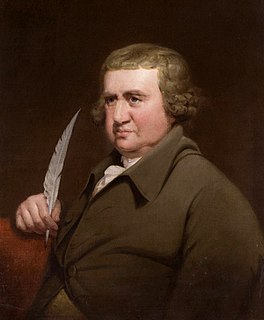A Quote by Emile M. Cioran
The wise man, the sage, is hostile to the new. Disabused, he abdicates: that is his form of protest.
Related Quotes
So erst the Sage [Pythagoras] with scientific truth In Grecian temples taught the attentive youth; With ceaseless change how restless atoms pass From life to life, a transmigrating mass; How the same organs, which to-day compose The poisonous henbane, or the fragrant rose, May with to-morrow's sun new forms compile, Frown in the Hero, in the Beauty smile. Whence drew the enlighten'd Sage the moral plan, That man should ever be the friend of man; Should eye with tenderness all living forms, His brother-emmets, and his sister-worms.
The Wise Man believes profoundly in silence - the sign of a perfect equilibrium. Silence is the absolute poise or balance of body, mind and spirit. The man who preserves his selfhood ever calm and unshaken by the storms of existence - not a leaf, as it were, astire on the tree, not a ripple upon the surface of the shinning pool-his, in the mind of the unlettered sage, is the ideal attitude and conduct of life. Silence is the cornerstone of character.
When compiling his great dictionary, the young Noah Webster travels to the Himalayas, where he climbs to the cave of the world's wises man. 'O, great sage,' he says, 'tell me the meaning of life.' The sage sits Noah at his feet and, with great solemnity, commences to unfold the meaning of life. When finished, he places a hand on the young man's shoulder and says, 'Do you have any other questions, my son?' Noah flips a page in his notebook and says, 'You wouldn't know the meaning of lift, would you?'
It is ignorance that is at times incomprehensible to the wise; for instance, he may not see 'the positive person' or 'the negative person' in a black and white way as many people do. A wise man may not understand it because, as a catalyst of wisdom, but not wise in his own eyes, even he can learn from and give back to fools. To think that an individual has absolutely nothing to offer to the table is counter-intuitively what the wise man considers to be 'the ignorance of hopelessness'.








































